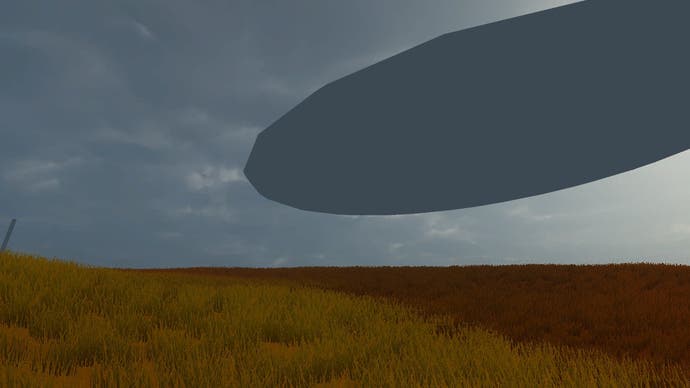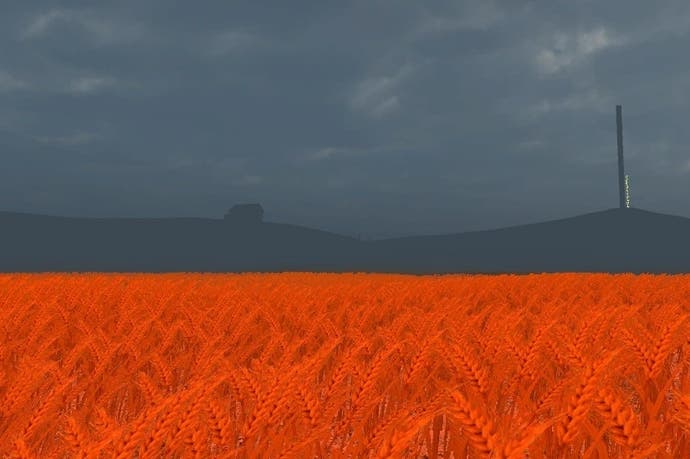The latest Lovecraft
The Rapture is here and you will be Forcibly Removed from your Home...
You don't have to have read much of HP Lovecraft's fiction to develop a pretty decent awareness of what Lovecraft's fiction is generally all about. I've been picking through his stuff for the first time over the last few months, in fact, and the process feels a bit like archaeology. Oh, here's where that idea comes from, I'll say, whether the idea in question is the plot point in a Stephen King novel or the basis for the movie The Thing - and Who Goes There, the short story from John W. Campbell Jr. that inspired it. By this stage, reading Lovecraft is about discovering hidden depths - hidden influences, anyway - in many of the other bits and pieces you've already read or watched.
Or played. Lovecraft's all over games - which is why it wasn't that surprising when The Call of Cthulhu recently turned up in a short list of books that an awful lot of game designers seem to have read. You could wish that designers had more wide-reaching tastes, perhaps, but the list itself probably represents a consensus - the overlap in a complex Venn diagram. Besides, Lovecraft's output works pretty well with games, so it was almost inevitable that they'd find each other eventually.
In part, that's because many of his most famous stories are about exploring. They're often about a surprisingly dim intellectual type off on an expedition that will take him far away from the things of man. As the text progresses, the natural landscape turns out to possess some rather unnatural features. Giant cities lurk atop plateaus, deserted but filled with clues of the monsters that inhabited them. You read on, and you start to feel haunted, and then hunted. You begin to suspect that the dead monstrosities you're hearing about may only really be sleeping.

Recently, Lovecraft's given us Eldritch, which is a wonderful procedural dungeon-dive through slimey things and unmentionable, unknowable horrors. It's also given us The Rapture is Here and you will be Forcibly Removed from your Home, a free downloadable Unity game by Connor Sherlock - a man who probably had little choice in his fate seeing as his name could have come right out of a Lovecraft novella in the first place.
The Rapture... is a short game, but I think it captures the Lovecraft atmosphere with peculiar brilliance. Lovecraft's a horror writer, but of the stories I've read, drooling, lunging horror itself is fairly low on the agenda. Instead, these tales sort of dig away at you, pedantic, illogical, and breaking up shocks of purple prose with details more likely to send you to sleep. The end result is a kind of claustrophobic dread: Lovecraft's narratives bully you and oppress you rather than making you jump from your seat.
As does The Rapture.... Sherlock's game starts you off with the knowledge that the world's going to end in 20 minutes - so have at it! WIth doom closing in, you're left to wander around a patch of gloomy New England countryside, pursued, in an off-hand manner, by a huge disk in the sky that keeps getting bigger. There's lurid yellow grass and louring skies, and every now and then a column of light will appear on the horizon - move through it and you trigger a chunk of audio taken from one of a series of Lovecraft stories.

Wandering aimlessly! Audio logs! These aren't the things that generally get you excited about a game, I suspect, but here they work a kind of magic. The brilliance of Lovecraft isn't that he's a particularly good writer (he was also, I should probably remind myself, a massive racist). It's that he's a persistent, obsessive writer, worrying away at a single theme from a variety of different angles, rewriting the same basic narrative while changing the names, the places, the boring details. You get a sense of that from The Rapture... - a sense that context ultimately doesn't matter, because, although the audio you're hearing is taken from different stories, they're all in some numinous way about a single, central issue anyway. They're all faint and trembling radio messages from the ragged edge of a depressed psyche. They all come bearing bad news: things are terrible, and they're about to get worse.
All of that in turn means that Sherlock can conjure a palpable sense of Lovecraft without having to drop in anything that slithers or coughs in the darkness, without any star-headed freaks or giant albino penguins. All he needs is a bit of weird alien architecture that crops up every now and then, a few flashes of strange light, and the one thing Lovecraft himself never tired of - the grim, inhuman landscape of New England, soggy and brooding and ancient and miserable.
A farm house, a forest, a cornfield and the end of the world, The Rapture... is a game that any fan of Lovecraft should explore. Even if you aren't a fan you could still give it a spin, actually. You may recognise more of it than you might be expecting to.









